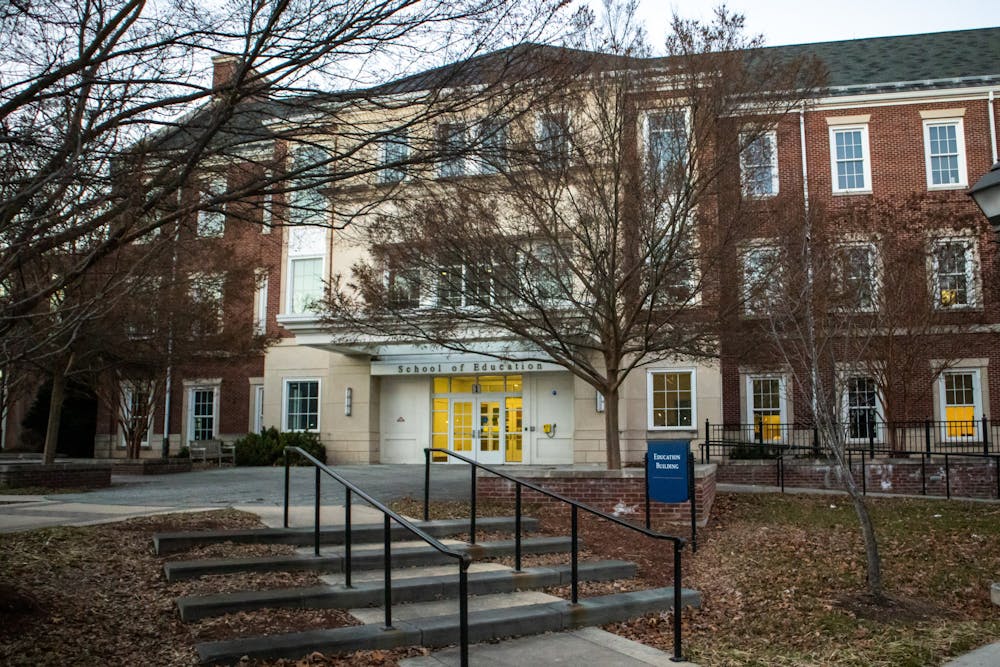By Kate Zydor
Staff Writer
Gov. Phil Murphy has signed a bill to eliminate the Praxis Skills Test required for aspiring N.J. teachers to receive their certification through alternate route programs without passing the exam. Murphy announced this legislation on Nov. 27, conveying his desire to increase teacher recruitment and ease staffing shortages.
The Praxis Skills Test consists of two major categories: Praxis core tests and Praxis subject tests. Praxis core exams are designed to measure a teacher candidate’s overall skills in reading, writing and math, whereas Praxis skills exams measure subject-specific knowledge.
According to NJ.com, Gov. Murphy’s bill will completely remove the requirement for education majors to pass this exam if they have not already received adequate SAT or ACT scores.
Interim School of Education Dean Tabitha Dell’Angelo, however, said the future of the requirement remains unclear.
“The Department of Education still must read, interpret and create the legislation into a policy, and state who it will impact,” Dell'Angelo said. “It’s possible that the [Department of Education] will say it’s only for alternate route programs.”
According to Dell’Angelo, the recent bill seems to apply only to candidates for a Certificate of Eligibility (CE).
“The Certificate of Eligibility is given to an individual who has not completed a teacher preparation program but meets the basic requirements for certification, including academic study and applicable test requirements,” as stated by the N.J. Department of Education.
In recent years, the view that the N.J. Department of Education should do away with these exams has become more widespread. This is in part due to the statewide teacher shortage among K-12 schools.
“Because being a teacher has become so difficult due to Covid-19 and today’s social climate, many teachers are quitting their jobs, leaving the remaining teachers to compensate for these vacancies with no pay increase,” said Aydan Goldstein, an early childhood special education and women’s, gender and sexuality studies double major.
In addition, President of the New Jersey Education Association Sean Spiller says eliminating this exam can help recruit more teachers.
“We’ve got to get people into the profession and we want to get a diverse workforce as we do it,” said Spiller. “But we’ve really got to focus on retention. What we’re seeing in the data is that educators are not staying until retirement, which they traditionally did in the past.”
The Educational Testing Service, which administers the Praxis, has argued that although there is a current shortage of teachers, the removal of the exams will result in diminished quality of the individuals graduating from education programs.
Dell’Angelo, however, disagreed with this assertion.
“We do have a real teacher shortage right now, and if we are making it harder for students to become teachers, it’s not going to help the pipeline,” Dell’Angelo said. “There is no evidence that the quality of teachers will be diminished.”
Other arguments against the Praxis Skills Test include its time constraints and the fact that it has hindered many high-achieving students’ ability to become teachers. With the cost of these exams ranging from $90-$160, this requirement may unfairly burden those of lower socioeconomic status.
“If the objective is to show that students have the knowledge to teach the subject they want to teach, [colleges] already have exams that demonstrate content area expertise,” Dell’Angelo said. “If a student is accepted to college and is doing well, clearly they have basic skills. Taking this test is an unnecessary hurdle…and there is no data to support its efficacy.”
With this, the College’s School of Education is tracking the progress of this new legislation and working to understand its implications for education majors. In the meantime, faculty members are recommending students take either the SAT or ACT exams in high school.
“While the headlines celebrate what we believe was the intention of the sponsors of the bill, it is not clear we are there yet,” Dell’Angelo in a letter to the editor of NJ.com. “Until then, the collective sigh of relief may need to be tempered. Do not let the headlines convince you that this struggle is over.”







